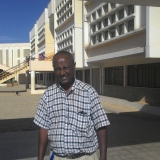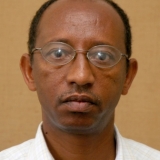Renewable natural resources such as forests, fisheries, grazing lands, soils, groundwater, etc, most of which fall under the category of common pool resources, constitute a significant part of our planet. Common-pool resources (CPRs) constitute important sources of livelihoods to many people in developing countries including timber, fuelwood, grazing, irrigation water, and domestic water.
Though renewable in the sense that they can be replenished through natural/biological means, these resources are depleted if use exceeds the maximum sustainable yield over extended period of time. On the other hand, common pools are resources suited for joint-use arrangements, that is, for common-property regime. The fact that these goods are shared between generations and their life span exceeds the membership span of the current (joint) users makes the allocation of common property resources an interesting inter-temporal and intergenerational subject of inquiry. However, these resources are under severe pressure due to population pressure, market and government failures, and the absence or ineffectiveness of use regulations of common property resources. The aim of this research is to enhance our understanding of the role of local institutions in the sustainable management of CPRs in Ethiopia and identify the circumstances under which the local CPR institutions or regimes could be stable and sustainable. Specifically, the objectives of this study are: (i) to describe the nature, role, and characteristics of local CPR institutions in Ethiopia; and (ii) to empirically analyze the interplay between the user characteristics, resource characteristics, and the institutional regime and determine the important factors for cooperation outcome. Broadly speaking, this study will inquire why is it that some local self-governing systems or institutions are sustainable and durable while others fail? Specifically, key research questions involved are what makes local CPR institutions successful? What are the factors that enhance the likelihood of stable and sustainable cooperation? Ostrom’s SES framework will be used in this research as guiding broader conceptual framework, that can be applied to identify important variables and relevant theory to be tested. Moreover, at the empirical level the study will employ tools from applied/ empirical industrial organization.




